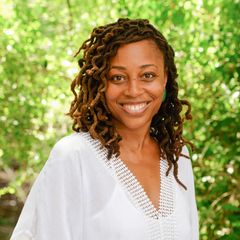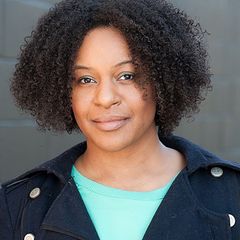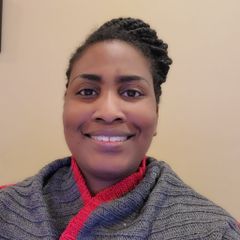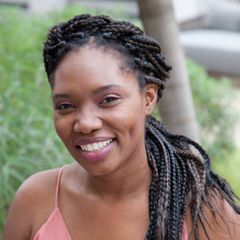Black History Month in the U.S. and Canada is celebrated in February, and with it comes the opportunity to connect learners with the stories, traditions, and values of Black communities.
“Black History is world history. On one hand, the amazing contributions of Black people are seen in every aspect of life. On the other, the harsh realities of Black History continue to impact various policies, our educational system, and equal access to opportunity. By teaching Black History to all students, we are equipping them with historical knowledge, cultural understanding, and the ability to celebrate our differences. These skills are necessary for our next generation of leaders to create a more equitable and inclusive society.”
– Hélsa Thompson, DEIB Community Lead at Outschool
As you’ll see educators noting below, this month isn’t the only time your curriculum could include Black history or lessons that embody Diversity, Equity, Inclusion, and Belonging (DEIB). If you’re considering teaching a class that incorporates themes from Black History Month, think of this as a jumping-off point for many exciting learning experiences to come!
We asked five educators with expertise in teaching Black history to share their insights on how and why to incorporate diverse perspectives into your classes. First, let’s meet our educator contributors:

Ms. Iman founded the Kind Academy organization on Outschool, and her core curriculum includes courses on anti-racism, DEIB, and social-emotional learning. She is passionate about including diverse Black perspectives in her classes and has authored several books on teaching Black history.
Ms. Shiren has worked as an educator in some capacity for 20+ years, and she currently teaches Outschool classes on the African diaspora for kids ages seven and up. She also speaks several languages fluently and teaches language learning classes in French, Spanish, and English.


Ms. Zhane loves teaching African-American and Asian-American history on Outschool to learners of all backgrounds. Her classes inspire learners to engage with different eras, events, and leaders from Black history that may not always be included in mainstream history lessons.
Alycia Wright has been a licensed educator for over 10 years and teaches a wide variety of classes on African-American Stories and history. She feels inspired to help future generations feel proud of their heritage and learn to fight against race-based stereotypes.


Mrs. Angela helps learners build their social-emotional and academic skills through fun, relatable, and age-appropriate activities. She teaches a variety of classes on Black history, music, and culture, and believes it’s important for young learners to know that we should celebrate – not avoid – our differences.
What inspires you to teach about diversity and Black history?
“I honestly just love opening my student’s eyes to all the things we don’t typically hear about. I didn’t learn about a lot of the things that I teach until I was in college, and I always wonder if I would have had more self-confidence growing up if I had known about the greatness of Black history.”
– Ms. Iman
Black history has the potential not only to teach learners something new but to empower them to be their greatest selves and find role models in our shared history as a global community. Ms. Shiren adds:
“Teaching Black history has impacted my learners by helping ‘heritage learners’ to see themselves in history and feel proud of their community’s contributions. Non-heritage learners also gain access to an aspect of world history they may not have the opportunity to access elsewhere.”
A “heritage learner” is a person who has connections to or was raised in a certain community, but who may just be learning about the history, culture, or language of that community for the first time. Offering a class that includes the perspectives of communities that have traditionally been omitted from history lessons may have an even bigger impact on learners than you realize.
On this note, Ms. Iman says:
“Students of color who learn decolonized Black history typically leave my class empowered and proud of their heritage (even the sad parts because they know it was not a fault of ours). White students generally leave knowing that they have the power to use their voices to enact change.”
How can educators incorporate Black history and diverse perspectives into their classes?
“I would like to see my fellow educators teach Black history with passion and good intentions. I would like educators to add Black history into their curriculum year-round and not only during Black History Month. Including more resources in the classroom, such as a more diverse selection of books for learners, would be a great way to incorporate Black history and other perspectives in classes.”
– Ms. Zhane
By dedicating a class to Black history (if it falls within your expertise) or appropriately weaving in diverse resources, activities, music, and more into your everyday courses, you can help reflect every learner in your lessons.
Mrs. Angela agrees that being intentional about what sources, examples, and authors you use in your class materials can help any educator bring more perspectives into their teaching.
“Educators should look for opportunities to highlight voices that are different than theirs. Books provide a way to explore topics that one may be less familiar with when they are written by a person from the culture or group represented. Also, online videos are a great source for representation. It’s the educator’s responsibility to ensure that the voice behind an educational experience is authentic.”
It’s also essential to keep in mind that the history of oppressed groups tends to be skewed toward the negative, and you should avoid only focusing on tragedy over any other aspect of their collective story.
“Often ‘diverse curriculum’ focuses on the trauma and oppression of various groups. Although these are very real experiences, educators’ curriculum should also inspire learners and include the accomplishments of those groups for all parts of society.”
– Alycia Wright
What do you love most about teaching Black History on Outschool?
If you’re interested in adding more DEIB topics to your classes, here’s why these educators are passionate about teaching these subjects on Outschool:
“One of my favorite aspects of teaching on Outschool is how eager families from all backgrounds are to learn about black history and culture. The fact that so many people choose to learn about something that is so valuable, yet sometimes overlooked, inspires me. It makes me feel like my children have less likelihood of experiencing some of the exclusion and ‘othering’ that I did as a child due to lack of knowledge and perspective.”
– Mrs. Angela
“I love providing access to lesser-known knowledge about Black History on a platform that celebrates unique learning experiences and provides an outlet for exploring topics unfortunately not always available as options in schools.”
– Ms. Shiren
“I have to say that I love the freedom to teach diverse perspectives, but really it is always about the kids. The kids come and teach me so much. I come with lesson plans and my excitement to share, but they really bring life to the curriculum and so much passion to learn this stuff. It makes what I do so easy and worth it!”
– Ms. Iman
“I love the fact that with Outschool, I can reach so many different students from all over the world. I love teaching Black history to students of all cultural backgrounds, and Outschool gives me that opportunity as an educator. Growing up, Black history wasn’t as accessible to me and other students, and now as a teacher, I get to teach the next generations about Black history and its importance.”
– Ms. Zhane
Learners are looking for this content during Black History Month and beyond; can you spark interest in your teaching business by incorporating Black history and DEIB into new classes? You should always teach subjects that match your experience and passions, but we hope that the perspectives from the educators above may give you insight into how you can bring more learners into the conversation.
More resources for teaching Black History:

